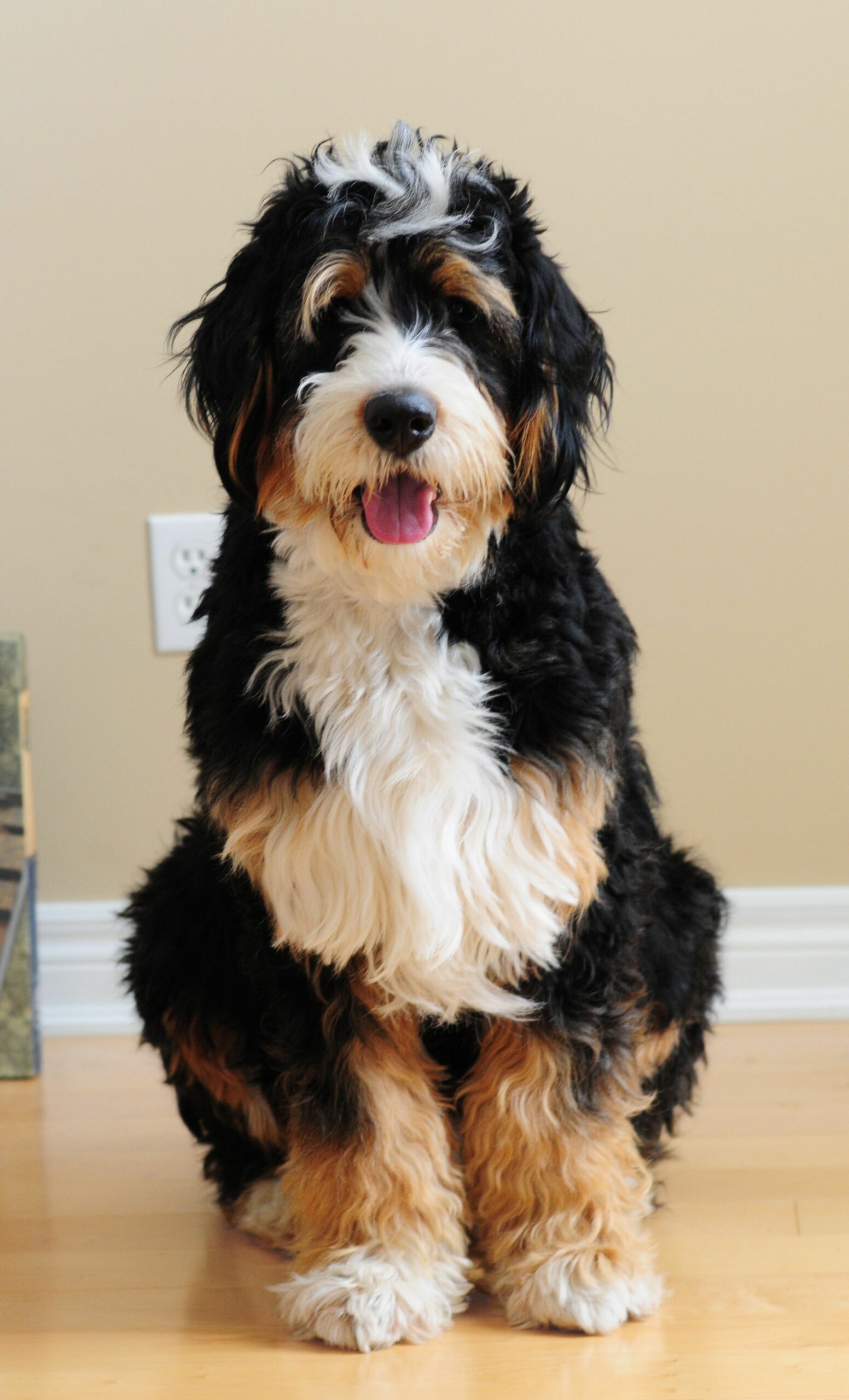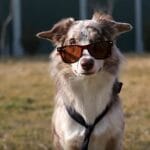Thinking about welcoming a Bernedoodle into your home but worried about allergies? You’re not alone. The term “hypoallergenic dog” is often used, but it’s important to understand what it truly means (and doesn’t mean) for allergy sufferers. This guide will provide you with the facts about Bernedoodles and allergies, empowering you to make an informed decision. We’ll explore the nuances of Bernedoodle generations, coat types, and offer practical advice for managing allergies. So, if you’re wondering if a Bernedoodle sheds a lot, which doodle is best for allergies, or how to minimize allergic reactions, read on!
Decoding the “Hypoallergenic” Myth
Let’s address the elephant in the room: no dog breed is truly 100% hypoallergenic. All dogs produce allergens found in their dander (dead skin flakes, similar to human dandruff), saliva, and urine. While some breeds produce less of these allergens than others, it’s crucial to understand that even a “hypoallergenic” dog can trigger reactions in sensitive individuals. Discover the surprising boon for grizzly bears in this unexpected habitat.
Bernedoodle Ancestry and Allergy Potential
Bernedoodles are a mix of Bernese Mountain Dog and Poodle. Poodles are often called “hypoallergenic” due to their curly, low-shedding coat. This characteristic may carry over to Bernedoodles, but it depends on the specific mix of genes inherited from each parent. This leads us to the importance of understanding Bernedoodle generations.
Bernedoodle Generations: Understanding the Impact on Allergies
A Bernedoodle’s generation significantly influences its coat type and potential to trigger allergies. Here’s a breakdown:
- F1 (First Generation): 50% Bernese Mountain Dog, 50% Poodle. F1 Bernedoodles are more likely to shed and have a higher allergen potential, similar to a Bernese Mountain Dog.
- F1B (Backcross): 75% Poodle, 25% Bernese Mountain Dog. Breeding an F1 Bernedoodle back with a Poodle results in an F1B, which typically sheds less and may be a better choice for allergy sufferers.
- F2 (Second Generation): Bred from two F1 Bernedoodles. Coat type and shedding are less predictable in F2s, varying significantly based on the parents’ genes.
- Multigenerational: Several generations removed from the initial F1 cross. Breeders aim for consistent traits like a low-shedding coat, but individual variations can still occur.
Table: Bernedoodle Generations and Shedding
| Generation | Poodle % | Bernese Mountain Dog % | Shedding Tendency | Allergen Potential |
|---|---|---|---|---|
| F1 | 50% | 50% | Higher | More likely to be higher |
| F1B | 75% | 25% | Lower | More likely to be lower |
| F2 | Varies | Varies | Unpredictable | Can vary significantly |
| Multigen | Varies | Varies | Typically Lower | Typically Lower |
Real-World Experiences: What Bernedoodle Owners Say
A Popular Doodle survey revealed that 28% of Bernedoodle owners who knew they had dog allergies still experienced some reactions. This reinforces the point that individual sensitivities vary greatly. Even if a Bernedoodle is considered “low-shedding,” it’s essential to spend time with the dog beforehand to gauge your personal reaction.
Practical Tips for Managing Allergies with a Bernedoodle
If you’re determined to share your life with a Bernedoodle, here are some tips to minimize allergens:
- Regular Grooming: Frequent brushing removes loose hair and dander, minimizing airborne allergens. Professional grooming every 6-8 weeks is also recommended.
- Hypoallergenic Shampoo: Using a specialized shampoo can help reduce allergens on the dog’s coat.
- Air Purifiers: HEPA filters are particularly effective at trapping airborne allergens.
- Designated Dog-Free Zones: Creating allergen-free spaces, especially in bedrooms, can offer significant relief.
- Allergy Medications: Consult your doctor about medications to manage your allergy symptoms.
Choosing the Right Bernedoodle: A Personal Journey
Finding the right Bernedoodle is a personal journey. While an F1B or multigenerational Bernedoodle is statistically more likely to be allergy-friendly, individual reactions vary. Spending time with a dog, observing your symptoms, and consulting with an allergist are essential steps. Remember, other breeds like Poodles, Bichon Frises, and Portuguese Water Dogs are also known for being relatively allergy-friendly.
Ongoing Research and Future Possibilities
Research into canine genetics and allergens is ongoing. Developments like DNA testing could offer better predictions about a puppy’s adult coat and shedding. Stay informed about new discoveries, as the understanding of dog allergies is constantly evolving. Learn how to effectively combat pesky insects with bengal spray for roaches in your home.
- Revolution Space: Disruptive Ion Propulsion Transforming Satellites - April 24, 2025
- Race Through Space: Fun Family Game for Kids - April 24, 2025
- Unlocking the Universe: reading about stars 6th grade Guide - April 24, 2025
















